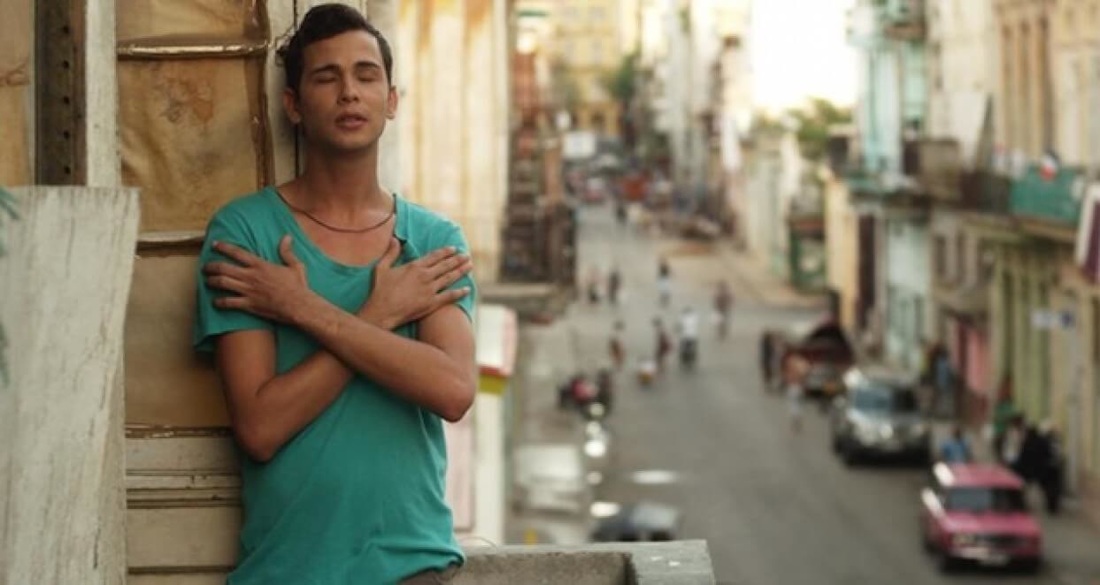Viva [2015], a Spanish-language film directed by Paddy Breathnach falls into the ‘important films’ category. These films usually explore a pressing or novel issue, then are nominated for many awards (and may win a few) and then fade away with the issue it presented due to a lack of depth or unique vision. There’s a great overview of this idea by Tony Zhou. Viva, a tale of a young man aspiring to be a performing transvestite despite his father’s violent opposition could’ve been one of these ‘important films’ which vanished with time. I have a good feeling it may hold up for years to come.
Slumthing old, slumthing new. Before I continue, I apologize for that pun, but it had to be done. Anyway, Viva’s script played with some very interesting themes such as masculinity and identity and how these affect those around the characters. In this regard the film was a great success, deftly treading the line between preachy and underdeveloped. Where the script fails at times is in the growth of Jesus (Viva’s lead and not the messiah) and Angel’s (Jesus’ father and part of a metaphor) relationship. For the first two acts, their relationship plays out quite well with each exploring each other’s ideals and creating some great tension and conflict. Later in the film, however, Angel’s character grows into something else far too fast for it to be believable. Moreover, some of the beats and ideas can feel like cliches, especially towards the film’s conclusion (though the final scene is fantastic).
Again! With more emotion. Director Paddy Breathnach, has taken a very holistic approach to creating emotion in Viva. In one of the film’s most panicked moments, the music, lighting, actor's performance and movement, camerawork and editing all adapt to create a sense of dread and confusion (and that’s not even mentioning the dialogue which obviously adds to the scenes). Many films will barely go beyond altering the performance and music to create mood, but here nearly every tool in the filmmaking arsenal is let loose. Moreover, nearly every scene is dressed with the sound of commotion to fully build the experience of being in the slum. This competence with the art of filmmaking persists (with a few lapses here or there) throughout the film, especially in the scenes where Jesus (or any of the other performers) goes out on stage. Here, fantastic acting and choreography (not to mention lighting and camerawork) immerse me in the experience, though these are somewhat hampered at times by poor lip syncing.
Easel peasy. I love a film which doesn’t draw attention to its strengths. Viva looks fantastic, but because its strong visual style is so well matched to the narrative and the tone of the film as a whole, it’s very easy to slip into the slums it's set in. Bright colours, smooth, graceful movement and effective use of space in the frame inject the film with an energy which builds upon the film’s character. There are, of course, shots which do stand out due to some great creative choices which separate Viva from the tamer offerings this awards season. Yet, all is not perfect in the visual department, however. There is a subtle camera shake on many shots where the main subject is still which can become tiresome after a while. This is particularly a shame when some of the most visually powerful images are simply flat, static shots. In this case, less is more.
An important, but, more importantly, well-crafted and energetic film which builds a wonderful and immersive world.

